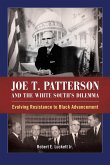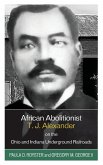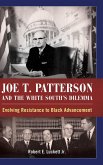This first collection of the essays of the late T. Harry Williams brings together some of the best shorter works of a man who was, by any standard, one of the finest historians of our time. Spanning the range of Williams' interests, this volume contains essays on the Civil War, Reconstruction, the ear of the world wars, military affairs, the craft of the historian, and the careers of Abraham Lincoln, Huey Long, and Lyndon Johnson. Williams' reputation rests on such large-scale works as Lincoln and His Generals and the Pulitzer-Prize winning biography Huey Long--exhaustively researched studies, monumental in their scope and ambition. Providing Williams with the chance to let his gaze probe beyond the fixed borders of such works, the essay was a flexible medium in which he could freely pursue some of the ideas that grew out of his daily regimen of writing and reading. He used the essay to examine large themes that spanned many areas of his interests as well as specific incidents in the course of American history, to reach both a popular audience and his fellow historians, to test ideas for books in the planning stage, and to assess the works of his colleagues. Among the essays brought together in this volume are "That Strange Sad War," in which Williams examines the Civil War as the first truly, and tragically, modern war; "Abraham Lincoln: Pragmatic Democrat," which sees Lincoln as the supreme example in our history of the union of principle and pragmatism in politics; and "The Louisiana Unification Movement of 1873," which traces the short history of an ambitious attempt to bring about racial unity in Reconstruction Louisiana. In "Interlude: 1918-1939"--an essay published here for the first time--Williams analyzes the weakened state of American military preparedness before Franklin Roosevelt came into office and turned his attention to the growing threat of Hitler's Germany. In "The Macs and the Ikes: America's Two Military Traditions," Williams contrasts the opposing types of military leaders in American history--those generals in the mold of Dwight Eisenhower who follow orders and submit to the power of the president and Congress, and the more fractious generals such as Douglas Macarthur, who view the military as an aristocracy of courage and genius and bridle at the reigns of civilian authority. "Huey, Lyndon, and Southern Radicalism" traces the common political roots of two men Williams considered among the most successful "power artists" of the century. And in "Lyndon Johnson and the Art of Biography," Williams discusses his own plans to write a biography of Johnson and speaks of his unapologetic belief in a great-man theory of history.








